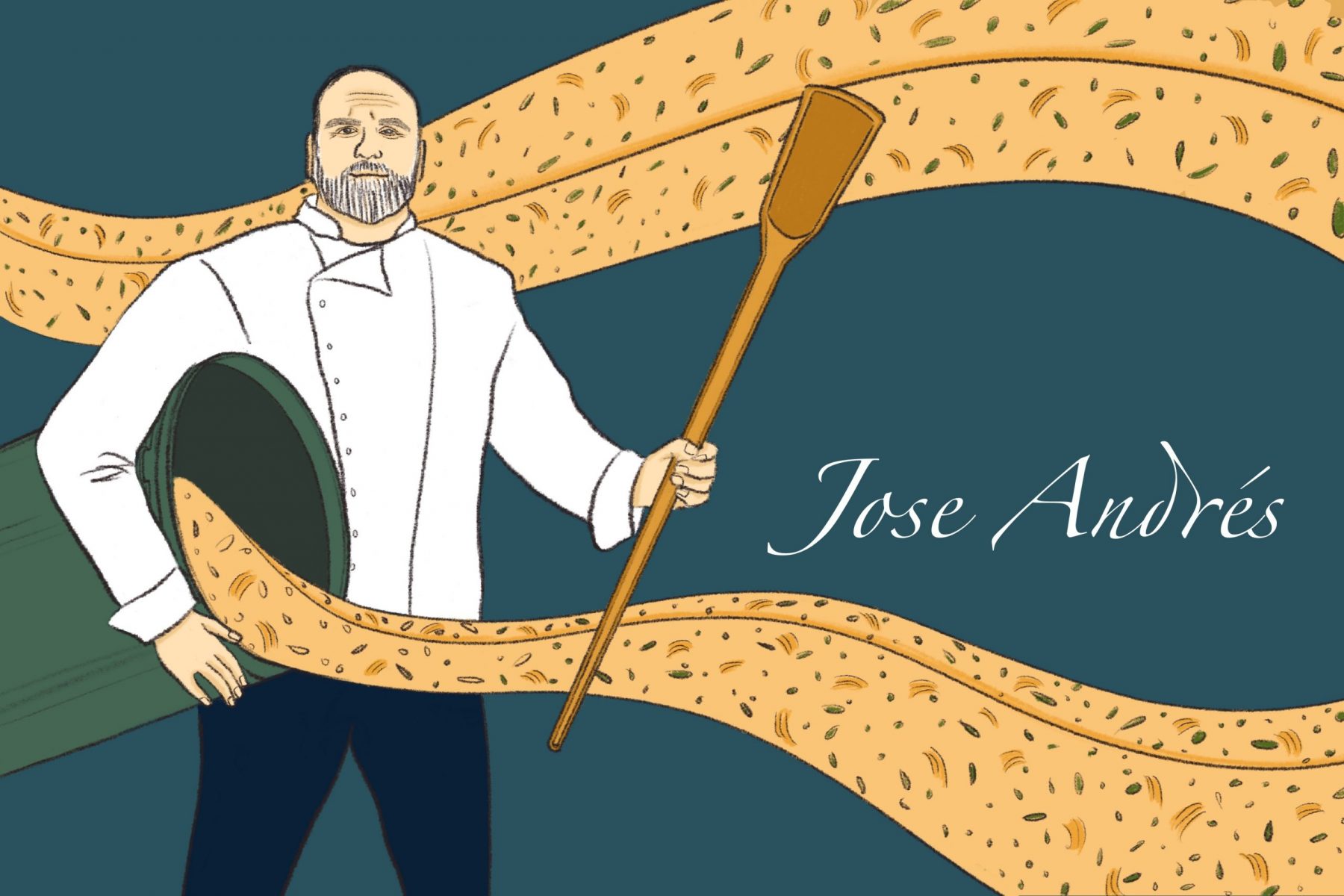Jeff Bezos. Bill Gates. Elon Musk. All of these men have practically become household names due to their success and immense fortunes. But there’s another man who deserves equal, if not more, media attention: chef and philanthropist José Andrés.
Background and Contributions to American Dining
Andrés’ rise to fame exemplifies a classic “rags to riches” story.
Born and raised in Spain, Andrés started cooking at a young age. At 15, he enrolled in a culinary school in Barcelona. After a short stint cooking for an admiral, Andrés started working at El Bulli, a Michelin star restaurant off the coast of Catalonia, Spain. Three years later, he was fired from his job and decided to seek culinary opportunities in America.
With only $50 in his pocket, 21-year-old Andrés was able to find work in New York City. Another three years passed and Andrés helped open Jaleo, a famous tapas bar in Washington D.C. Impressed with his skills, the owners of Jaleo solicited Andrés to help open other well-known restaurants in D.C., including Zaytinya and Oyamel, both of which Andrés now owns.
In 2003, he opened his own restaurant in D.C., the exclusive minibar. Since then, he has continued to grow his food empire, opening countless unique restaurants across the country through his company ThinkFoodGroup, including a chain of vegetable-based restaurants called Beefsteak. With all of his restaurants, his goal is the same: to change the world through the power of food.
Throughout his endeavors, he has heavily influenced the American restaurant industry. Perhaps his greatest contribution is the concept of “small plate” dining, known as tapas in Spain.
Tapas are usually a small snack or appetizer; however, many Spanish restaurateurs have taken them to a whole new level by making the dish a main course. Many of Andrés’ restaurants serve very sophisticated tapas as the main meal.
Andrés’ culinary accomplishments have not gone unnoticed. He is the only chef globally that has both a two-star Michelin restaurant and four Bib Gourmands, both prestigious awards in the cooking world. However, he has also received praise for his work in other areas.
Philanthropy
Following the Haiti Earthquake in 2010, he founded World Central Kitchen, a nonprofit organization devoted to providing healthy meals to those affected by natural disasters. Since 2010, Andrés and World Central Kitchen have continued their work across the world, providing food relief in the Dominican Republic, Nicaragua, Zambia, Peru, Cuba, Uganda, the Bahamas, Cambodia, Puerto Rico and the United States. The nonprofit was also a central force in the aftermath of Hurricane Maria, the hurricane that devastated Puerto Rico in 2017. World Central Kitchen provided over 100,000 meals a day to those afflicted by the hurricane, serving more meals than the American Red Cross or Salvation Army. For these efforts, Andrés was awarded the James Beard Foundation Award for humanitarian of the year.
Andrés’ philanthropic actions didn’t stop there. During both the 2013 and 2018-2019 government shutdown, Andrés offered free meals to furloughed federal employees (an initiative he called #ChefForFeds).
He is currently hard at work providing food relief to those affected by COVID-19. In February, Andrés and World Central Kitchen provided meals to those quarantined on cruise ships. In April, he promised nurses and health professionals free meals for the rest of the year. Andrés has also partnered with the D.C. baseball team the Washington Nationals to use their stadium as a community kitchen and site to distribute free meals to those in the D.C. area. As of July 28, Andrés and World Central Kitchen had helped serve over 20 million meals across the United States.
His humanitarian actions have been acknowledged countless times. In addition to his humanitarian of the year award, Andrés has been featured twice (in 2012 and in 2018) in the TIME 100, a list of the 100 most influential people of a given year. In fact, Andrés’ altruism almost earned him a Nobel Peace Prize in 2018.
While the act of feeding those affected by natural disasters is noble in itself, what makes Andrés’ relief efforts even more notable is the speed in which he coordinates his response. When disaster strikes, Andrés and his team are usually the first ones on the scene.
“When we hear about a tragedy, we all kind of get stuck on ‘What’s the best to way to help?’” said Lin-Manuel Miranda, who became friends with Andrés through his work in Puerto Rico following Hurricane Maria. “He just hurries his ass over and gets down there.”
Activism
An immigrant himself, he is very vocal about immigration reform, specifically criticizing the Trump administration’s immigration policies.
“When you feel sometimes that things are unfair and unjust, I do believe it’s the role of every American to speak up,” said Andrés. “The smart thing for America to do once and for all, is to pass immigration reform.”
Andrés has also had clashes with the president himself. Back in 2015, Andrés and fellow chef Geoffrey Zakarian had agreed to build restaurants in Trump’s new hotel in Washington D.C. However, after Trump’s offensive comments toward Mexicans — “They’re bringing drugs. They’re bringing crime. They’re rapists.” — the two backed out of the agreement.
“Donald Trump’s recent statements disparaging immigrants make it impossible for my company and I to move forward with opening a successful Spanish restaurant in Trump International’s upcoming hotel in Washington, D.C.,” Andrés said in a statement to The Washington Post. “More than half of my team is Hispanic, as are many of our guests. And, as a proud Spanish immigrant and recently naturalized American citizen myself, I believe that every human being deserves respect, regardless of immigration status.”
Furious, Trump sued Andrés and Zakarian for a breach of contract. While the lawsuit was eventually settled in 2017, Andrés continues to use his platform to criticize Trump, mostly through trolling him on Twitter.
Just as he’s set out to do with his restaurants, he is changing the world for the better. He has used his platform, resources and wealth to make a real contribution to society: a lesson many of the top 1% couldn’t hurt to learn.

















